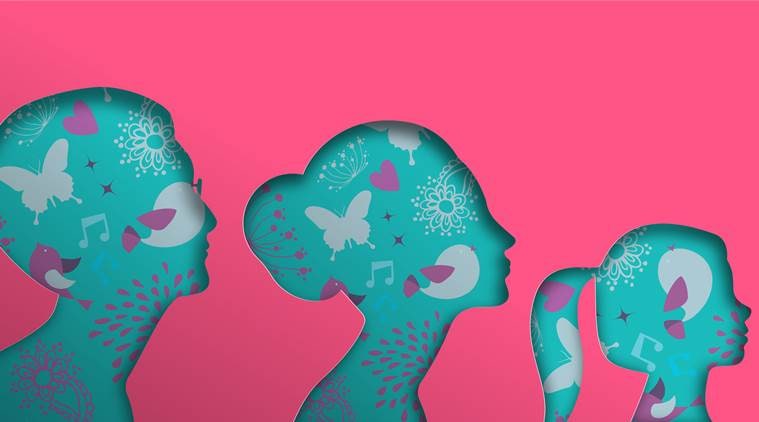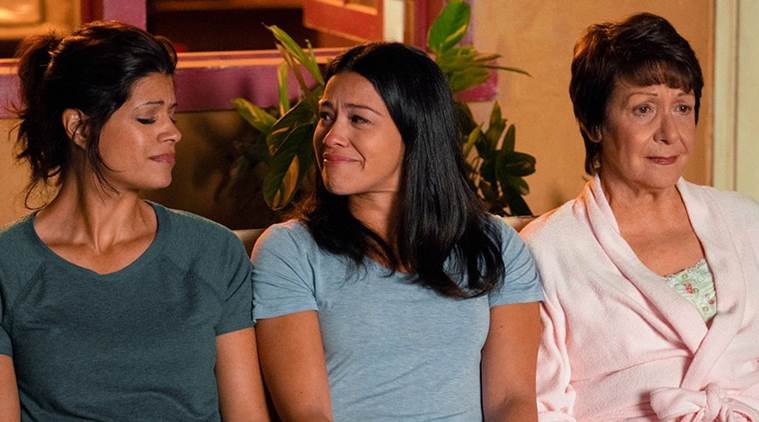 My mother was moulded by her mother, who was moulded by hers, who, in turn, learnt from her mother that day when she was sent to jail for showing dissent. (Source: Getty/Thinkstock)
My mother was moulded by her mother, who was moulded by hers, who, in turn, learnt from her mother that day when she was sent to jail for showing dissent. (Source: Getty/Thinkstock)
“You are not doing anything exceptional!”
“Well, neither are you!”
I slam the door and plonk myself on the bed. Outside, my mother goes back to work. I hear the clanking of the utensils; I hear the muttering. It makes me more impatient, so I plug in my headphones and begin streaming something online; anything that can take my mind off the fracas.
I settle for Netflix’s Jane the Virgin. My eyes begin to well up, as I grow increasingly aware of the situation. And before long, I am a bawling mess. Okay, that might be a hyperbole: I am a mess.
The evening crawls in joylessly and my grandmother (mother’s mother) ambles her way into the living room. She finds a comfortable corner on the sofa and begins her daily Bangla-serial marathon. I look at her, and then at the television screen — slightly unsettled by the mind-numbing plots she so seems to enjoy. She stares at me and smiles.
Before long, I withdraw into my room once again and find solace in the world of a fictional character. Fictional as she may be, Jane the Virgin‘s Jane Gloriana Villanueva puts me in a contemplative mood, mainly because her arc speaks to mine, and by extension, to the equation I share with my own mother and grandmother.
For as long as I remember, my mother and I have seldom shared the same stage, or been on the same page. Growing up, when I didn’t really have hard-hitting opinions of my own, she moulded me as she fancied — projecting some of her aspirations on me, as most mothers do. So, that tabla class I resented was her doing. As were the Hindustani classical music classes that marked a huge chunk of my formative years. But, she wasn’t pushy when it came to career choices. And, we shared some common interests, too: passion for sports and the performing arts being some of them.
It was only when I started understanding myself and the world better — allowing to my thoughts to fall into a structure — did we begin to argue. Me with my worldviews, and my mother with her simplistic ideals. Circa 2013-2014, we started squabbling a lot more. My ideas of feminism clashed with hers. These days, we just wake up and go about our chores, wishing we do not have to lock our horns.
The generational gap that exists between me and my grandmother, kills any kind of conflict between us; as does her hearing problem. Also the fact that she sometimes leaves me agape with her candid queries on love and millennial relationships. Unlike my mother, my grandmother is more receptive to the changing trajectories of present-day relationships. So, she sometimes hits me with a “why don’t you meet your male friends more often after work?”, as opposed to my mother’s “the right time to marry is now”.
 Jane the Virgin is a telenovela that explores, among other things, the relationship between the three generations of Villanueva women, with their own individual personalities and interpersonal rapport. (Source: Facebook/@cwjanethevirgin)
Jane the Virgin is a telenovela that explores, among other things, the relationship between the three generations of Villanueva women, with their own individual personalities and interpersonal rapport. (Source: Facebook/@cwjanethevirgin)
When she is not watching her serials, my grandmother insists I sit with her and discuss her childhood. Of how she defied her father and the caste system and married my grandfather (a non-Brahmin). Or how her own mother — a demure woman — rebelled against patriarchy in her own resilient way. Sometimes dida (Bangla for maternal grandmother) goes further back, and fondly recalls her grandmother, a young widow who, she says, served jail term in pre-Partition India for bringing down/burning the Union Jack (it is not exactly clear as to what she did).
When I see my grandmother today, dragging her body, the loose end of her saree brushing the floor carelessly, the image of her lifting heavy grocery bags from the local shopping bazaars in Kolkata, crops in my head — fuzzy and distant.
Coming back to my mother, I have realised with time that the reason we are more at loggerheads these days is because our personalities — more than views — clash with each other. The very same personality of mine that was non-existent that hot summer afternoon I arrived blubbing into this world, and one that she helped build by pushing just the right buttons, clashes with her equally-stubborn one.
The tabla class was her way of introducing me to the world of unconventional. The aspirations she had for me, were to thwart gender norms. She was moulded by her mother, who was moulded by hers, who, in turn, learnt from her mother that day when she was sent to jail for showing dissent.
Women do not have it easy, not in this country, not in the world, and not in my family. We bicker and lament and learn and unlearn. I do with my mother, she does it with hers. Sometimes, when I am blindsided by my own inconveniences, I take a moment and go back to the numerous occasions in the past when my mother has anchored the ship that is my family, through the toughest storms. It makes me wonder if I am educating her on feminism or if I am learning it from her, and everybody else who came before her.
It is night time now, and nobody has spoken a word yet. I decide to call truce. I walk to my mother’s room and find her sitting on the bed, reading something on her phone. I whisper a ‘sorry’. She keeps her phone away, eyes brimming with tears and whispers back: “It’s okay, darling. Happy Women’s Day.”